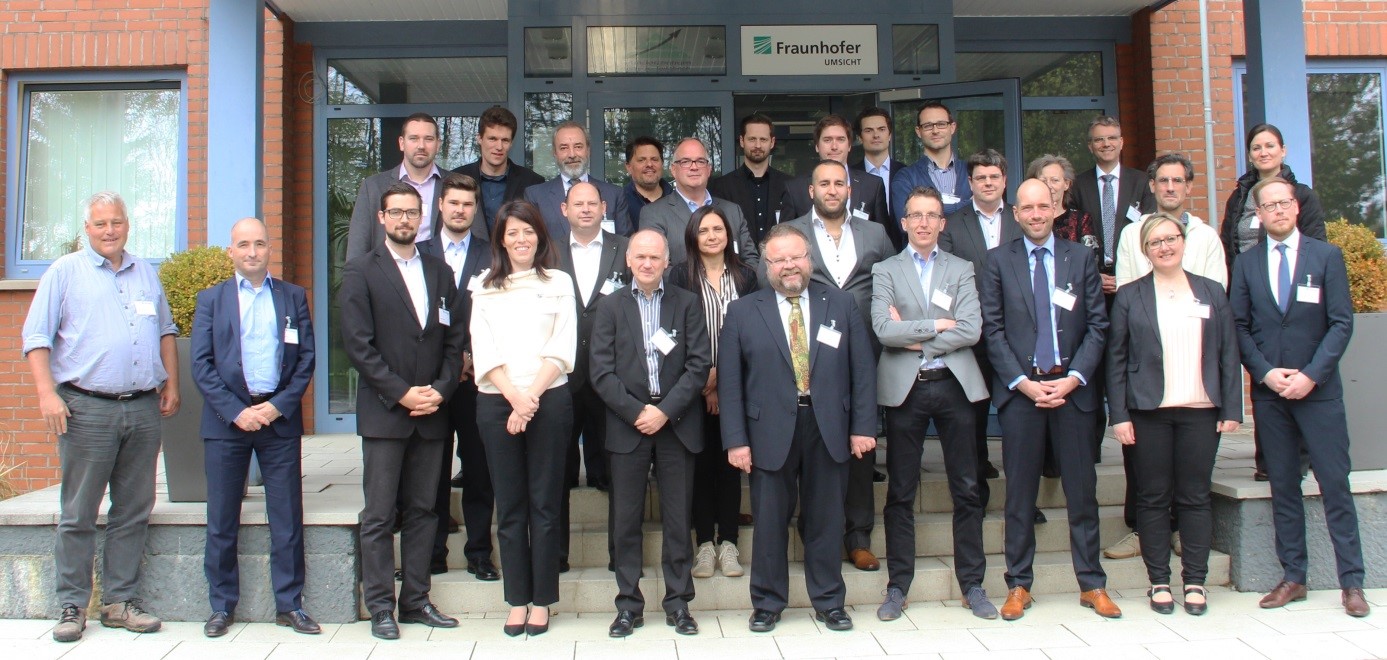Starting TOSYNFUEL project : Conversion of sewage sludge into fuel and hydrogen
On May 1, 2017, the Horizon 2020 research project “Demonstration of Waste Biomass to Synthetic Fuels and Green Hydrogen” (acronym: TOSYNFUEL) coordinated by Fraunhofer UMSICHT with the support of the project partners, started officially. The project has a budget of over 14 million euros, a duration of 48 months and will show how residual fuel is used for the first time in the production of synthetic fuel and hydrogen.
Political background
The European Commission has set itself the objective of producing 10% of the fuel used in transport from renewable sources. However, the first generation of biofuels has been criticized for ecological and social reasons. There were different reasons, such as the increase in food prices, the clearing of forests and the increased use of fossil fuels in the cultivation and transport of raw materials. To solve this problem, the Commission imposed an upper limit on biofuels from foodstuffs or energy crops. “There is therefore an urgent need to launch innovative biofuels from sustainable raw materials,” explains Prof. Dr. Andreas Hornung, coordinator of the project.
TCR® technology as a solution
The developed TCR® technology from Fraunhofer UMSICHT is therefore a globally applicable solution. The thermocatalytic reforming produces renewable, liquid fuels from waste biomass, which can replace fossil fuels. The fuels produced meet the European standards for petrol and diesel EN228 and EN590, which has already been demonstrated in the pilot plant scale. This very high oil quality is achieved by the thermo-catalytic reforming TCR®. The technology converts essentially all types of residual biomasses into three main products: H2 rich synthesis gas, biocarbon and liquid bio-oil, which can be upgraded.
The main target of the TOSYNFUEL project
“The main goal is to create a new value chain through the combination of TCR® and HDO and the separation of H2. For example, biogenic waste or organic residues are to be converted into demonstration-scale, cost-effective and high-performance synthetic fuels within the framework of the project. These products can be used directly in combustion engines, “says Prof. Dr. Andreas Hornung. To achieve this goal, the TOSYNFUEL project is subdivided into ten milestones, each of which is assigned to a corresponding work package. In addition, the project aims to increase the acceptance of biofuels and to show the general public that the new diesel and gasoline-equivalent, synthetic fuel is competitive with fossil fuels. In the long term, TCR® technology opens up the possibility of transforming organic waste into renewable fuels with the quality of fossil fuels and directly into existing petroleum infrastructure. “We want to show that the TCR® technology is not only environmentally friendly but also economically priced,” says Prof. Dr. Andreas Hornung, by installing a TCR® system at the port of Rotterdam.
Partner in the EU project TOSYNFUEL
For the project, Fraunhofer UMSICHT (Germany) has invited other partners, such as Engie Services Niederland NV (Netherlands), Alma Mater Studiorum – University of Bologna (Italy), ENI S.p.A. (Italy), University of Birmingham (United Kingdom), ETA–Florence Renewable Energies (Italy), LEITAT (Spain), Susteen Technologies GmbH (Germany), WRG Europe Ltd (United Kingdom), Verfahrenstechnik Schwedt GmbH (Germany), HYGEAR Technology and Services BV (Netherlands) and Slibverwerking Noord-Brabant NV (Netherlands). Each of the partners has certain tasks and contributes to the overall execution of the project.
 This project has received funding from the European Union’s Horizon 2020 research and innovation programme under grant agreement No 745749. This publication reflects only the author’s views and the European Union is not liable for any use that may be made of the information contained therein.
This project has received funding from the European Union’s Horizon 2020 research and innovation programme under grant agreement No 745749. This publication reflects only the author’s views and the European Union is not liable for any use that may be made of the information contained therein.

